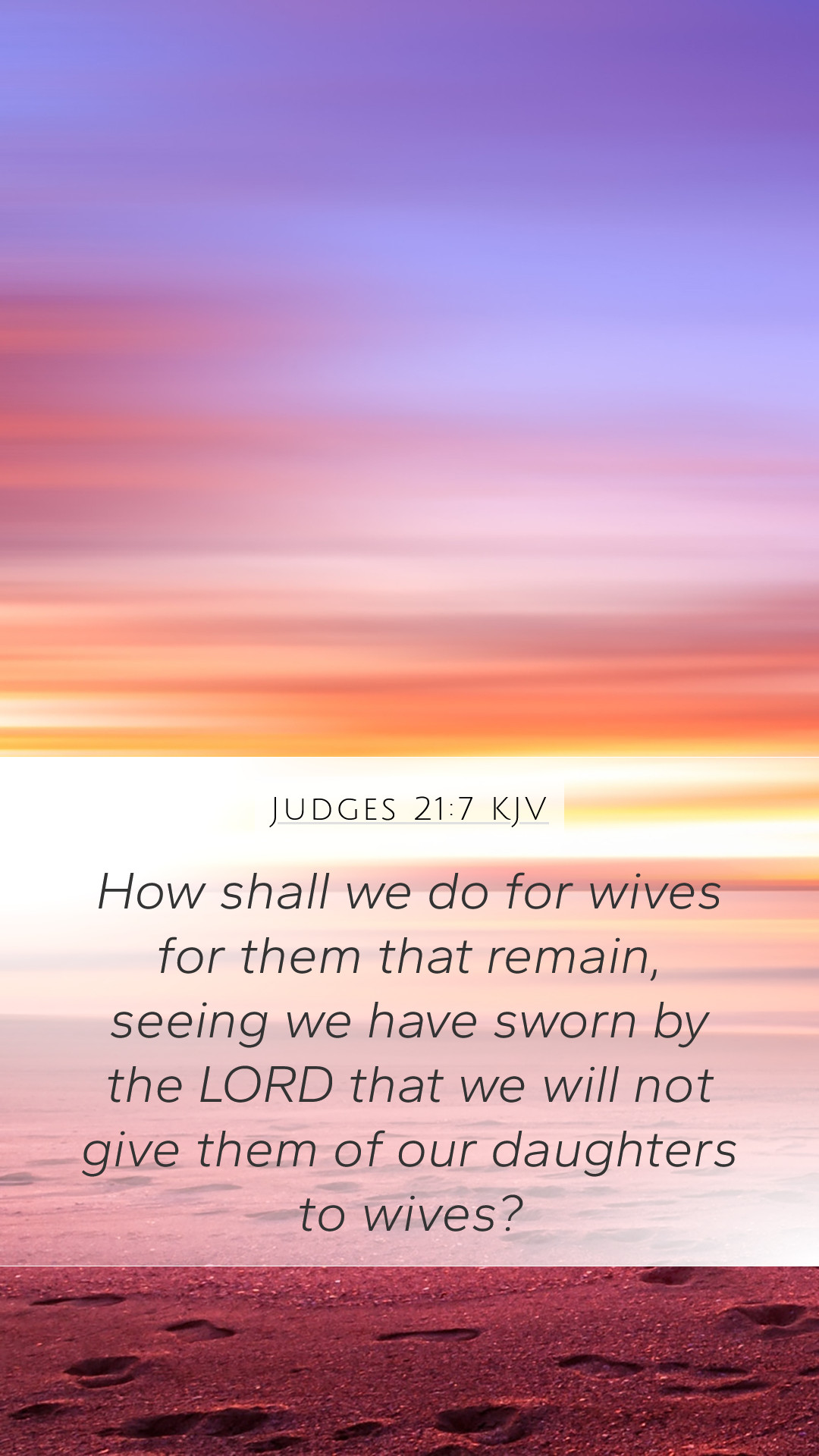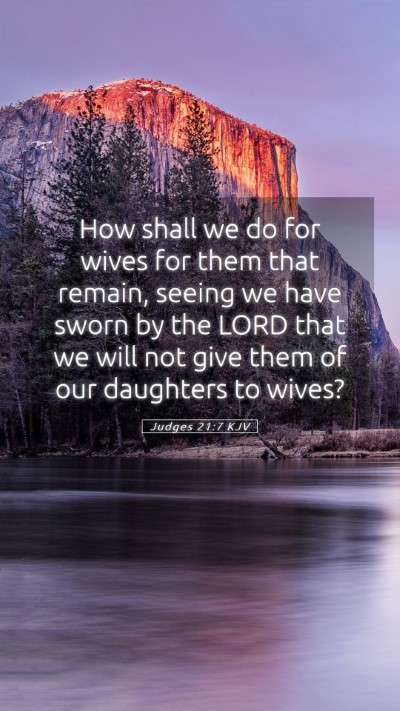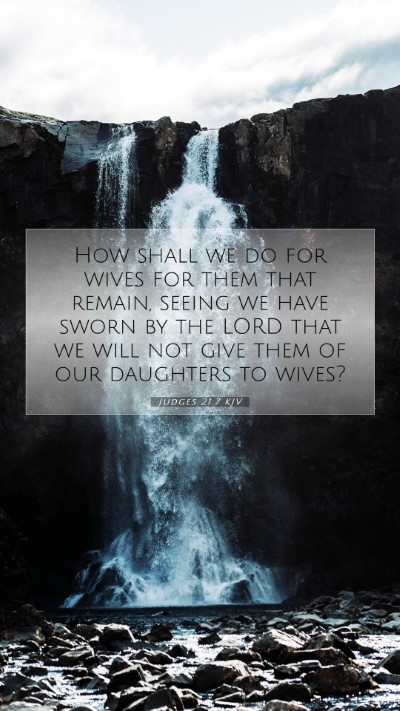Bible Verse Meaning for Judges 21:7
Judges 21:7 poses a significant inquiry during a tumultuous period in Israel's history. This verse reads:
"What shall we do for wives for those who remain, since we have sworn by the Lord that we will not give them our daughters as wives?"
This verse presents an essential concern following a catastrophic conflict that left the tribe of Benjamin in dire straits. The overarching themes discernible in this scripture relate to the impact of oaths, the consequences of war, and the moral dilemmas faced by the Israelite community.
Context and Background
The account in Judges follows a period of chaos and moral decline in Israel, as detailed throughout the book. The Israelites had made a vow not to give their daughters to the men of Benjamin, who had suffered massive casualties in a civil war brought about by grievous sins.
According to Matthew Henry, this vow was made in earnest, reflecting their distress at the violence committed by the tribe of Benjamin. However, the implications of this oath created a dilemma for the preservation of the tribe. Henry emphasizes that even earnest oaths can lead to troubling consequences.
Interpretation and Insights
Albert Barnes provides an interpretation emphasizing the importance of understanding the weight of one’s commitments. His analysis highlights the Israelites' predicament: they desired to honor their vows while also recognizing the urgent need to ensure the survival of Benjamin, a critical component of the nation’s unity.
Adam Clarke further elaborates on the social and cultural meanings at play. He notes that marriages were often used to strengthen alliances, making this situation particularly challenging. The loss of female members via their oaths threatened not only Benjamin's future but also the cohesion of the tribes of Israel.
Moral and Theological Implications
- The seriousness of vows: The Israelite's oath demonstrated the gravity of commitments made in the sight of God. Breaking a vow has serious repercussions, as highlighted in various scriptures throughout the Old Testament.
- Community responsibility: The passage reveals the interconnectedness of the tribes of Israel; the plight of one tribe affects the national identity. This communal sense of responsibility is a recurring theme in Scripture.
- Divine providence: Even amid human dilemmas, there is an underlying trust in God’s plan and provision. The Israelites had to seek God's guidance in how to resolve their crisis without violating their promises.
Application for Today
Understanding Judges 21:7 offers Bible study insights relevant for contemporary believers. It encourages individuals and Bible study groups to reflect on:
- The importance of integrity: The necessity to uphold one's word, especially concerning commitments made before God.
- Communal support during crises: Encouraging unity and support within Christian communities during difficult times.
- Seeking divine guidance: Involving prayer and discernment when faced with challenging decisions, ensuring that one's actions align with God's will.
Cross References
- Numbers 30:2 – The seriousness of making vows to God.
- 1 Samuel 14:24 – Another instance where oaths created difficult situations.
- Judges 20:48 – The devastating consequences of civil conflict within Israel.
Concluding Thoughts
Judges 21:7 serves as a profound reminder of the impact of human choices and the necessity of seeking divine guidance through ethical challenges encountered in life. It underscores themes prevalent throughout the Bible about the nature of commitments, community, and seeking God’s direction in all matters.


